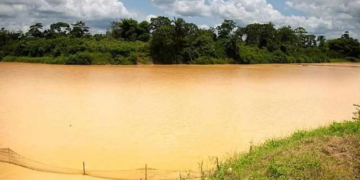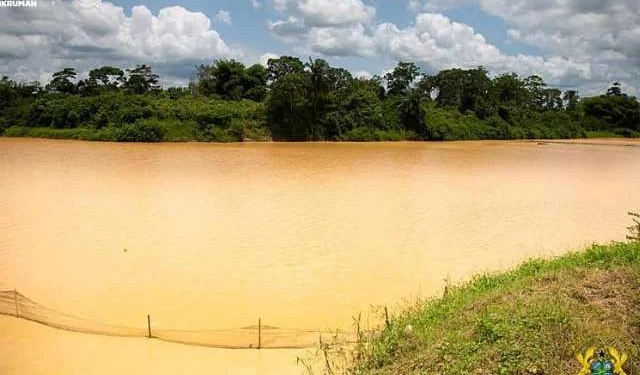The Council for Scientific and Industrial Research (CSIR) has declared that it possesses the capacity to restore Ghana’s water bodies, but it is hampered by a critical lack of funding.
Dr. Michael Kumi, Senior Research Scientist at CSIR, underscored the necessity of ceasing these destructive practices as a primary step toward recovering the nation’s safe water sources.
“The immediate solution is to stop the galamsey activities and focus on how to remove the trace metals that are left in the sediment,” he asserted.
Speaking on ABC in the Morning on October 14, 2024, Dr. Kumi detailed the ongoing efforts by CSIR to combat the detrimental effects of galamsey on water quality.
He highlighted the organization’s readiness to implement technological solutions to assess contamination levels, but stressed the urgent need for funding and support to carry out these initiatives effectively.
“CSIR has the capacity to do that, but what we need is funding and support. We have the technology and the instruments to detect and analyze the extent of contamination,” he noted.
Dr. Kumi also pointed out the extensive education CSIR is conducting regarding the impacts of galamsey.
“We have monitored some of these water bodies and we have come out clearly that there is too much turbidity in the system,” he explained, reflecting on the historical context where enforcement of laws had previously led to improvements.
He expressed optimism that similar measures could yield results again, provided the necessary resources are made available.
However, the outlook for restoring the ecological balance remains daunting.
Reports suggest that it may take up to 300 years to rehabilitate soils affected by galamsey through phytoremediation techniques. Furthermore, experts have warned that restoring water bodies could require a commitment of 10 to 15 years, even with immediate action.
The complexity of ecological recovery demands continuous monitoring and sustained remediation efforts to ensure the long-term health of these vital ecosystems.

































